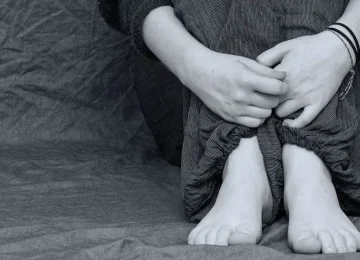Do you know what domestic co-responsibility is? To tell you the truth, I had no idea it was called that; but to be honest, I have been practicing it for a long time; and trust me, if I didn’t, I would not be writing this column with peace of mind, without thinking that I have to wash dishes or make dinner.
Domestic co-responsibility is nothing more than the balanced distribution of household chores and family responsibilities, such as tidiness, care, education and love of all family members, both parents and children.
In this way, children become supportive, altruistic, collaborative and functional people. Of course, these tasks and responsibilities must be distributed in a fair and equitable way among all members of the family group.
The idea is to organize your schedule and not spend the weekend doing household chores. By setting the example and having a good attitude, from the youngest to the oldest child will understand that everyone can collaborate in the order and tidiness of the house.
Since I was a child, I have noticed that some family roles have been associated exclusively with women and others with men. Women are dedicated to cleaning, cooking, educating and caring; while men are providers, work outside the home, bring the money and protect the family.
This was the reality of grandmothers, and even of many contemporary moms, but in today’s ultra-modernity, the picture is different. Families have hectic lives, complicated schedules and diverse jobs, but they have adapted to all these changes; a clear example is teleworking.
However, not everything is rosy. Working from home is complicated. The famous telework has had a differential impact on both men and women, but more so on women because their tasks have multiplied and many still cannot balance their work and family life.
The stress load increases because women feel that they are constantly involved in simultaneous activities, because they have to combine their work, household chores and caring for their children. Many finish their work while everyone else is asleep.
Although sometimes, couples end up getting used to all these daily routines, in the end they end up affecting many areas of cohabitation, especially their sex life.
“When one of the parties has to carry all the responsibilities, that ends up affecting another field, and it’s not uncommon for it to be the sexual one”, says psychologist and clinical sexologist Andrea Orlandini Cappannari.
The million-dollar question: Would you have pleasurable sex if you feel tired, sleepy or stressed? I found this timely answer from Orlandini, who claims that inequity is anti-erotic. From her Instagram account she says: “Every human relationship should be based on equity and respect, collaborating with each other makes our desire active, and we can develop better sexual communication”.
Domestic co-responsibility and parenting favors, enables, increases and determines a much more erotic vision of life based on empathy and sexual solidarity, Andrea considers.
“That person is tired because of the physical effort and disappointed with their partner due to lack of help. Good sexual health is always accompanied by other factors of cohabitation”, warns the sexologist.
Orlandini concludes: “If you respect me, if we share and distribute equally, we have much more chance to have fun and have a more pleasurable, harmonious and deeply connected sex life”.
Life is very short and there is time for everything, it is just a matter of being organized and, of course, asking for help, especially, if there is a person by your side. So, make your partner and your family a functional team, because everything goes better in company.
Traducción del español: Catalina Oviedo Brugés
















